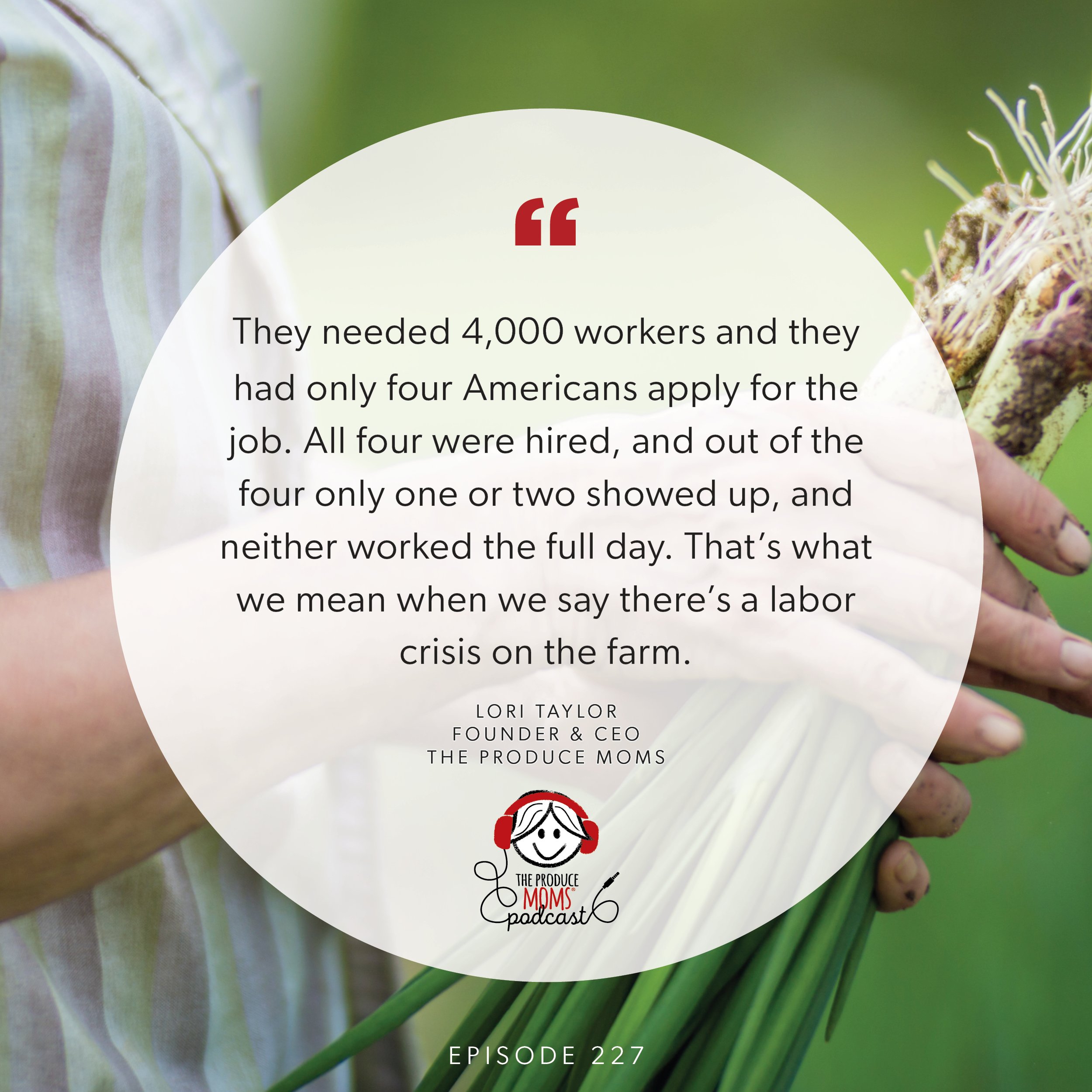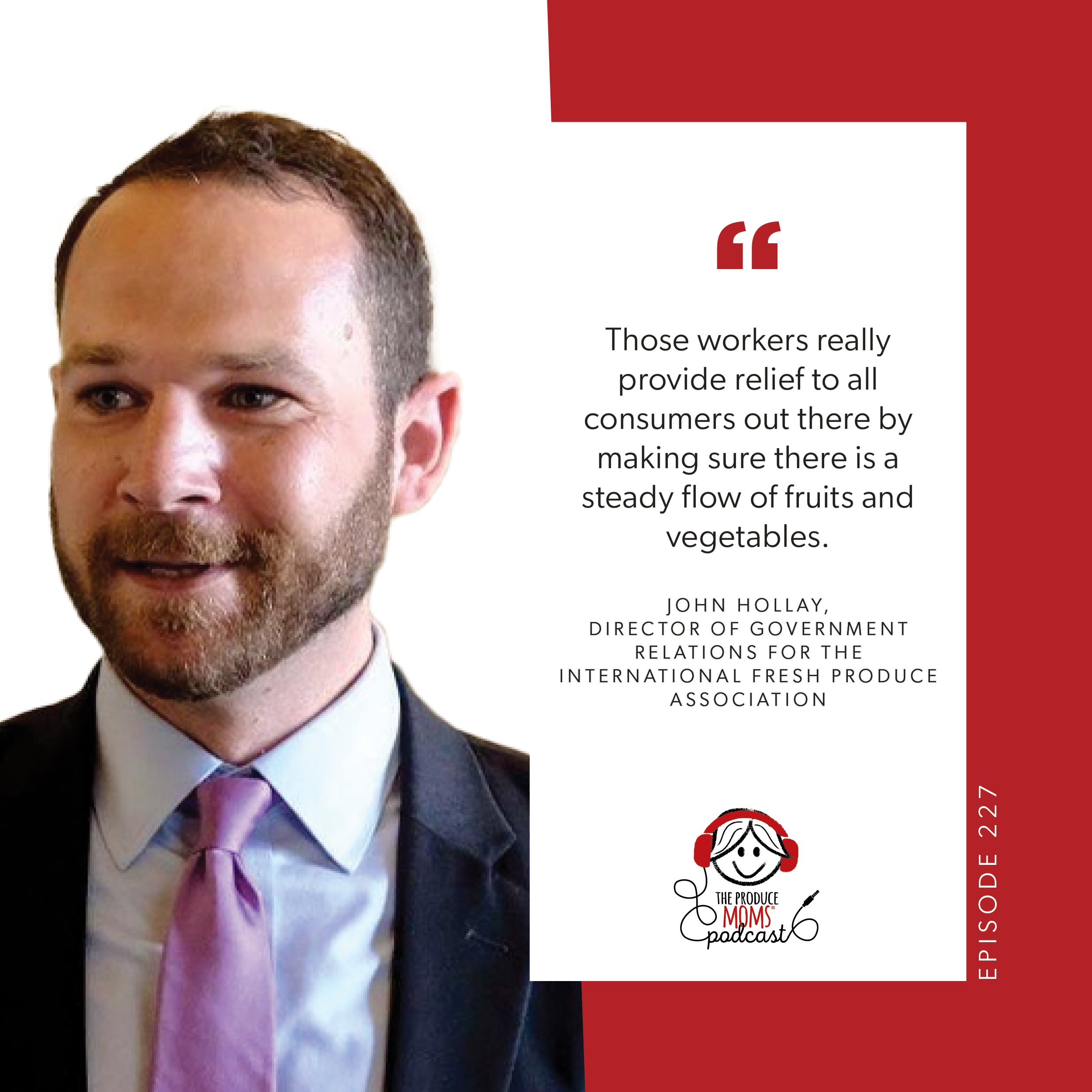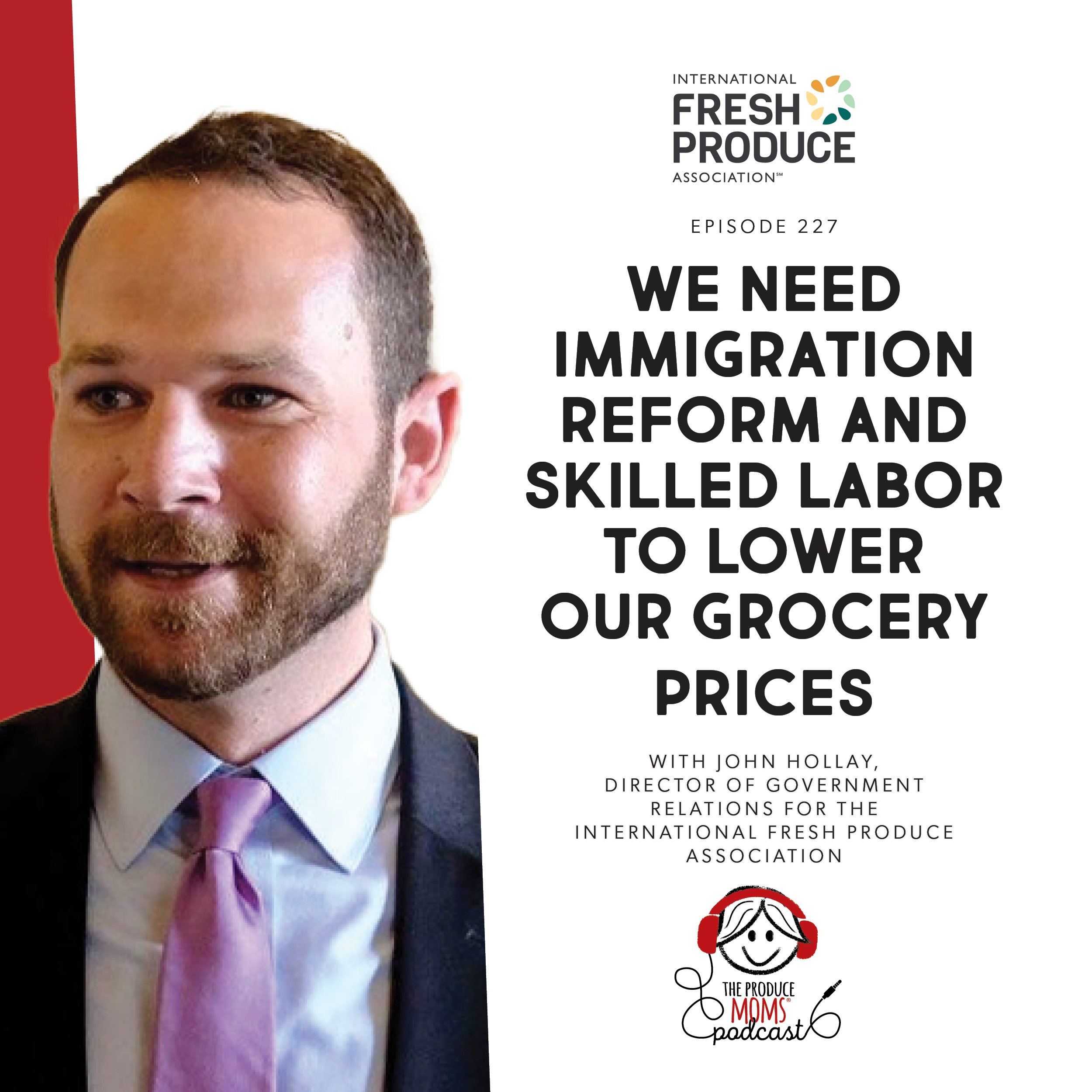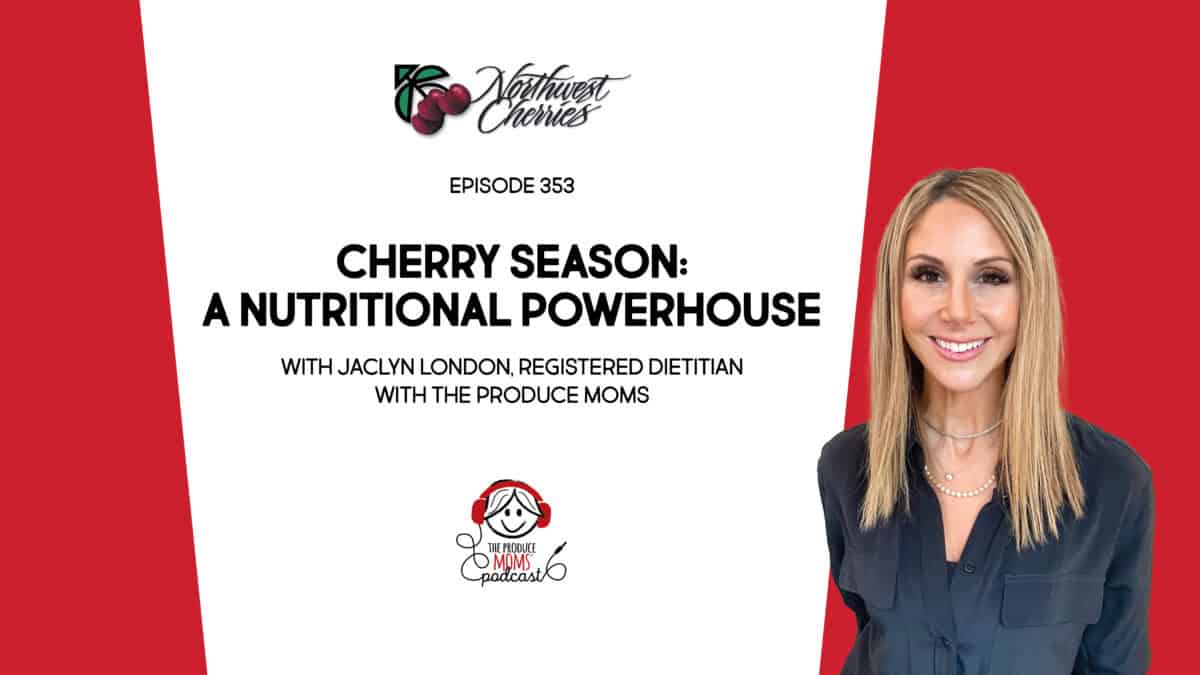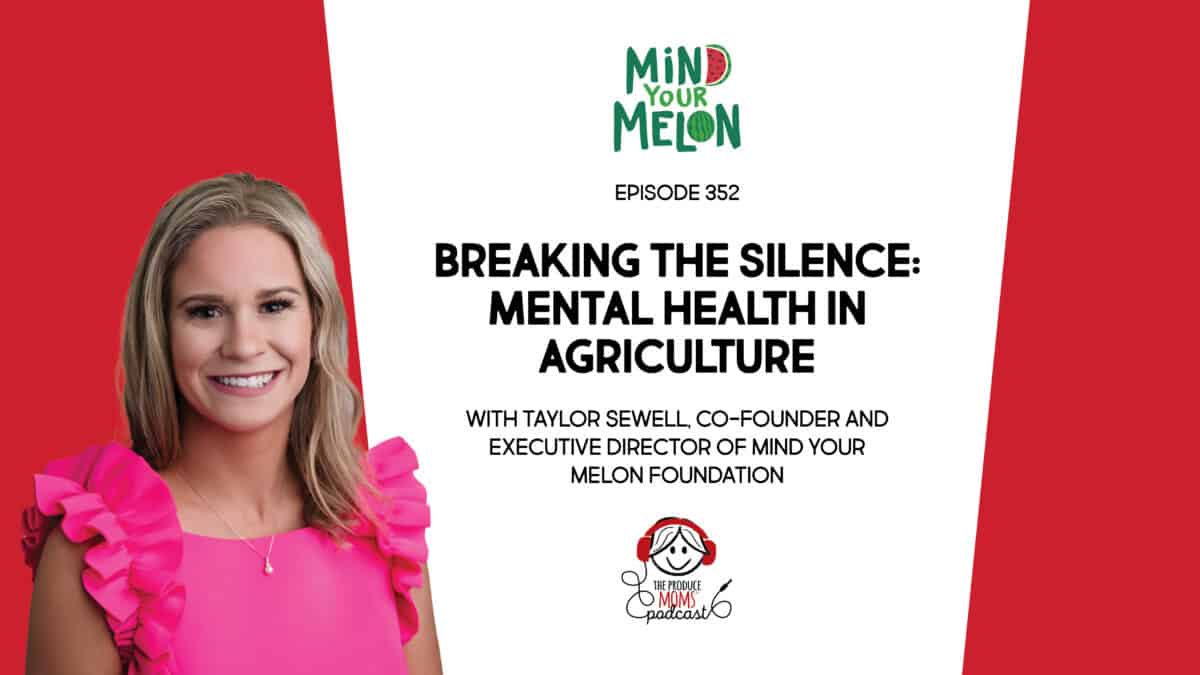Episode 227: John Hollay
Aug 03, 2022
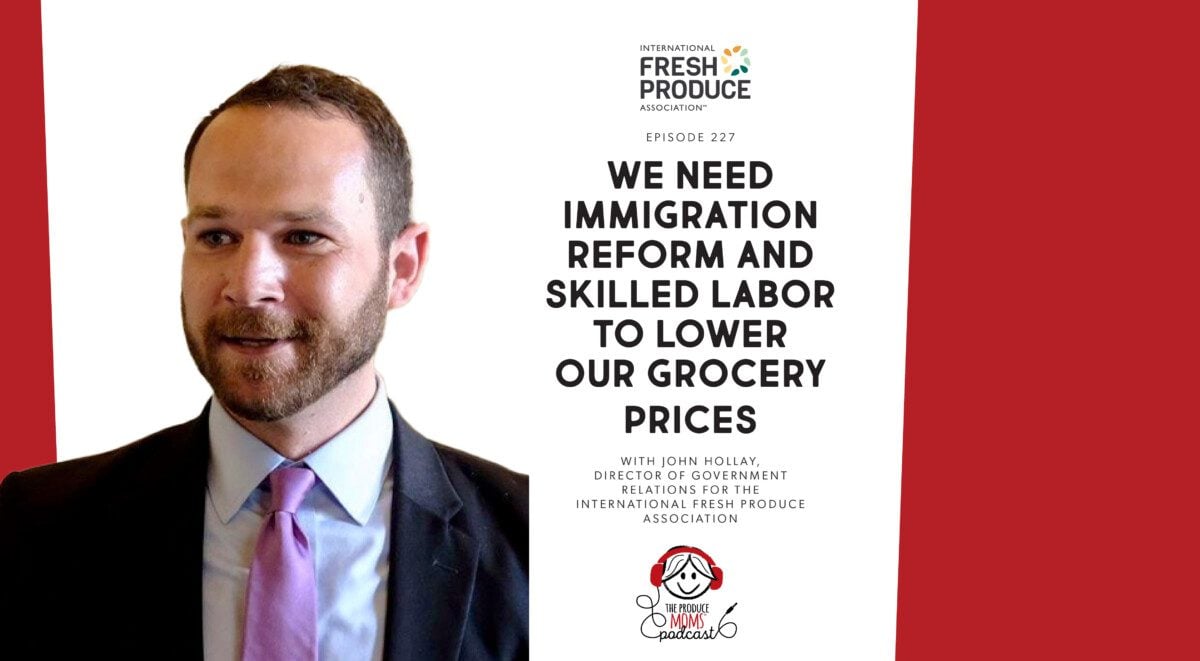
This post may contain affiliate links. Please read our disclosure policy.
“We 100% know and believe here in the produce industry that with proper immigration reform we will be able to increase efficiencies on the farm and therefore drive down the price of food at the grocery store.” Lori Taylor (7:04-7:17)
We’re all feeling the pain of rising gas and grocery store prices. Everything is going up thanks to inflation, but one remedy to fix it is through immigration reform. Congress and the presidential administration haven’t passed any immigration reform since the Reagan Administration, which is why John Hollay, Director of Government Relations for the International Fresh Produce Association, has been working on immigration and labor policy for over 15 years.
Recently, Lori had the opportunity to join John and many other individuals representing different parts of the supply chain as a panelist for a press conference to showcase how and why this is the solution to focus on now if Congress wants to help lower our rising prices. A Texas A&M International University study just showed a direct correlation between the lack of immigration reform and the prices of groceries in the store, and quite simply, if farmers had access to the number of workers they need, they could grow more crops, and sell them to retailers and other parts of the supply chain at a lower price. Thankfully, this issue has been a bipartisan effort which helped the House pass the Farm Workforce Modernization Act last year. With the Congressional election coming up in November, it’s important now more than ever to raise this issue to the top to get Congress to act on immigration law reform.
A great example of why immigration reform is necessary comes from one of TPM’s active brand partners, a farm based in Yuma, Arizona, where most of our winter vegetables are grown along with a ton of export crops. This farmland has a high production rate and the owner shared with Lori just how difficult it was to get workers. The farm needed 4,000 workers for their harvest crew and in response to their job posting for it, only four applicants showed up. Out of the four American workers hired, only two showed up for work and didn’t even stay the full day.
When farmers utilize the H-2A labor program, they must first utilize all of their resources to try and secure a domestic workforce, which as you can see, isn’t that easy. It’s much easier to secure the H-2A workforce because skilled laborers are able to come here, make a very good wage, go back to their native country and use it to support not just their immediate family, but oftentimes their extended family, giving them a quality of life that wouldn’t be possible without a program that put them with American agriculture.
“We have come to expect, here in America, access to all kinds of fruits and vegetables all year round when these are fruits and vegetables that only used to be available during certain times of the year. In order to do that, we need to have the workforce that can deliver those food items and right now our farmers are struggling with that, different parts of the supply chain are struggling with that, so there’s an increase in food prices because farmers can’t plan ahead,” John tells us.
If we want to continue to produce the number of fruits and vegetables our country demands, we need to empower farmers to have the highest rate of efficiency as possible and that must include an improved labor workforce, access to immigrant workforce, and different types of benefits for those who come here as employees that might want a pathway to citizenship. The other key benefit to hiring immigrant workers is many of them are skilled laborers and able to handle the hard, difficult work a farm demands, unlike many of our domestic workers. The lack of workforce has gotten so bad that many farmers have to plow over their healthy, plentiful crops. The supply we’re demanding is being grown! But the supply for the workforce demanded to bring those crops from the field to the store isn’t enough.
Part of the legislation the IFPA supports has an e-verify program which ensures immigrants that are coming over here to work are doing so legally. Farmers aren’t experts in the type of paperwork and documents workers must show, so they aren’t able to identify if papers are fraudulent or not, which is what e-verify takes care of. Border security is also a part of this legislation as these workers oftentimes go back to their home country every night (like in the case of Yuma, Arizona), and it’s important to note that most of them don’t even want a citizenship, either. They just want to do the hard work they’re skilled to do, make a good income, and take it back to their homes in their own country.
If you’re wondering what you can do to help pass immigration reform and lower our grocery prices, John says, “you need to be calling, you need to be emailing, and you need to be showing up when [members of Congress] show up when they speak in your communities at town halls. The people who show up, the people whose voices are the loudest, frankly are the ones that are heard. I would urge all your listeners to reach out to their members of Congress in any way they can whether it’s in person, text, email, tweet… however it is going to be heard.” Take it from someone who’s worked as a former congressional staffer! John says that members of congress DO read your emails, texts and messages and it plays a huge role in helping them understand what matters.
How to get involved
- Join The Produce Moms Group on Facebook and continue the discussion every week!
- Reach out to us – we’d love to hear more about where you are in life and business! Find out more here.
If you liked this episode, be sure to subscribe and leave a quick review on iTunes. It would mean the world to hear your feedback and we’d love for you to help us spread the word!
Previous episodes you may enjoy
- Episode 226: Brett Valicoff
- Episode 225: Dana Gunders
- Episode 224: Raina Nelson and Johnathan Sutton
- Episode 223: Justin Levy
- Episode 222: Beth Bocock
